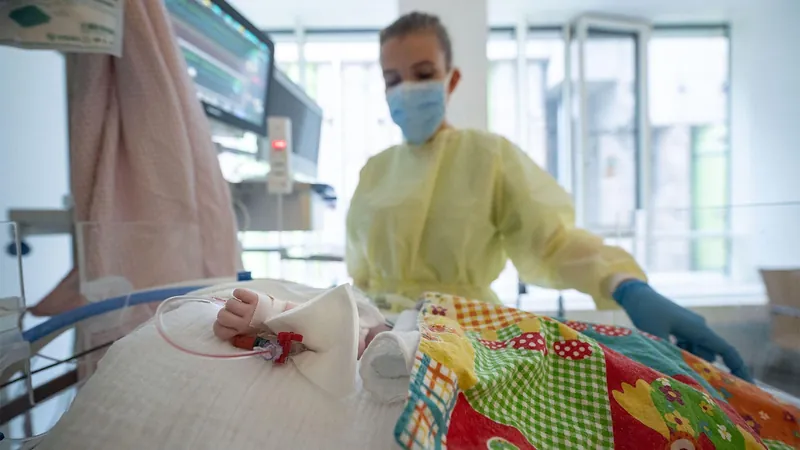
Breakthrough in RSV Treatment: New Oral Antiviral Shows Promising Results in Young Patients!
2024-09-25
Introduction
A groundbreaking new oral antiviral drug, ziresovir, has demonstrated significant efficacy and safety for treating severe respiratory syncytial virus (RSV) in infants and toddlers, according to a recent Phase III clinical trial conducted across multiple hospitals in China.
AIRFLO Trial Results
The trial, known as AIRFLO, determined that ziresovir, an RSV F protein inhibitor, led to a remarkable 30% greater improvement in bronchiolitis symptoms compared to a placebo. Specifically, by day three, patients taking ziresovir had an average decrease in the Wang bronchiolitis clinical score of approximately 3.4 points, contrasted with just 2.7 points for those on placebo. The odds of children experiencing a reduction of at least 75% in symptom severity also significantly favored the ziresovir group.
Viral Load Reduction
In addition to symptom relief, ziresovir-treated patients showed a more considerable decrease in RSV viral load in their nasal passages. By day five, the reduction in viral load was markedly higher for the ziresovir group than for the placebo, suggesting a substantial antivirus effect that could alleviate the severity of RSV infections.
Safety Profile
Safety concerns were minimal, with adverse events occurring in just 16% of the ziresovir group compared to 13% in the placebo cohort, indicating that the drug is generally well-tolerated. Researchers highlighted the lack of significant safety issues, encouraging further exploration of ziresovir’s efficacy in larger, international trials.
Study Limitations
However, experts noted certain limitations within the study. One such concern raised by Edward Walsh, MD, from the University of Rochester, is that the Wang bronchiolitis clinical score used in the trial has not been fully verified for accuracy in RSV studies. There are questions as to whether improvements reflected on this scale correspond with critical clinical outcomes, such as earlier hospital discharges or fewer admissions to intensive care units.
Timing of Treatment
The timing of treatment initiation post-symptom onset also raised eyebrows. Patients received ziresovir an average of four days after the appearance of symptoms— a period when viral loads typically start to decline. Walsh argues that earlier administration of ziresovir, especially in high-risk infants and those with premature births, could greatly enhance treatment effectiveness and potentially lead to fewer hospital admissions.
Implications for Broader Populations
The positive outcomes of the AIRFLO trial could lead to new therapeutic avenues not only for infants but also for children aged 2 to 5 with high-risk conditions and immunocompromised individuals, a population in dire need of effective RSV treatment options.
Current Preventative Protocols
Current protocols for preventing severe RSV illness in infants include maternal vaccination and monoclonal antibodies for at-risk infants, but ziresovir could become a game-changer, providing an additional line of defense against this common respiratory infection.
Trial Demographics
In this trial, 164 patients were assigned to ziresovir and 80 to placebo. A significant majority were male, and almost all participants were of Han Chinese descent. Dosage was calibrated based on the child's weight, ensuring tailored treatment.
Conclusion
As the world grapples with RSV outbreaks, the advent of ziresovir could represent a monumental leap forward in pediatric care. With further studies on the horizon, the medical community is optimistic about what this innovative antiviral could mean for the future of RSV treatment—potentially saving countless young lives.





 Brasil (PT)
Brasil (PT)
 Canada (EN)
Canada (EN)
 Chile (ES)
Chile (ES)
 España (ES)
España (ES)
 France (FR)
France (FR)
 Hong Kong (EN)
Hong Kong (EN)
 Italia (IT)
Italia (IT)
 日本 (JA)
日本 (JA)
 Magyarország (HU)
Magyarország (HU)
 Norge (NO)
Norge (NO)
 Polska (PL)
Polska (PL)
 Schweiz (DE)
Schweiz (DE)
 Singapore (EN)
Singapore (EN)
 Sverige (SV)
Sverige (SV)
 Suomi (FI)
Suomi (FI)
 Türkiye (TR)
Türkiye (TR)